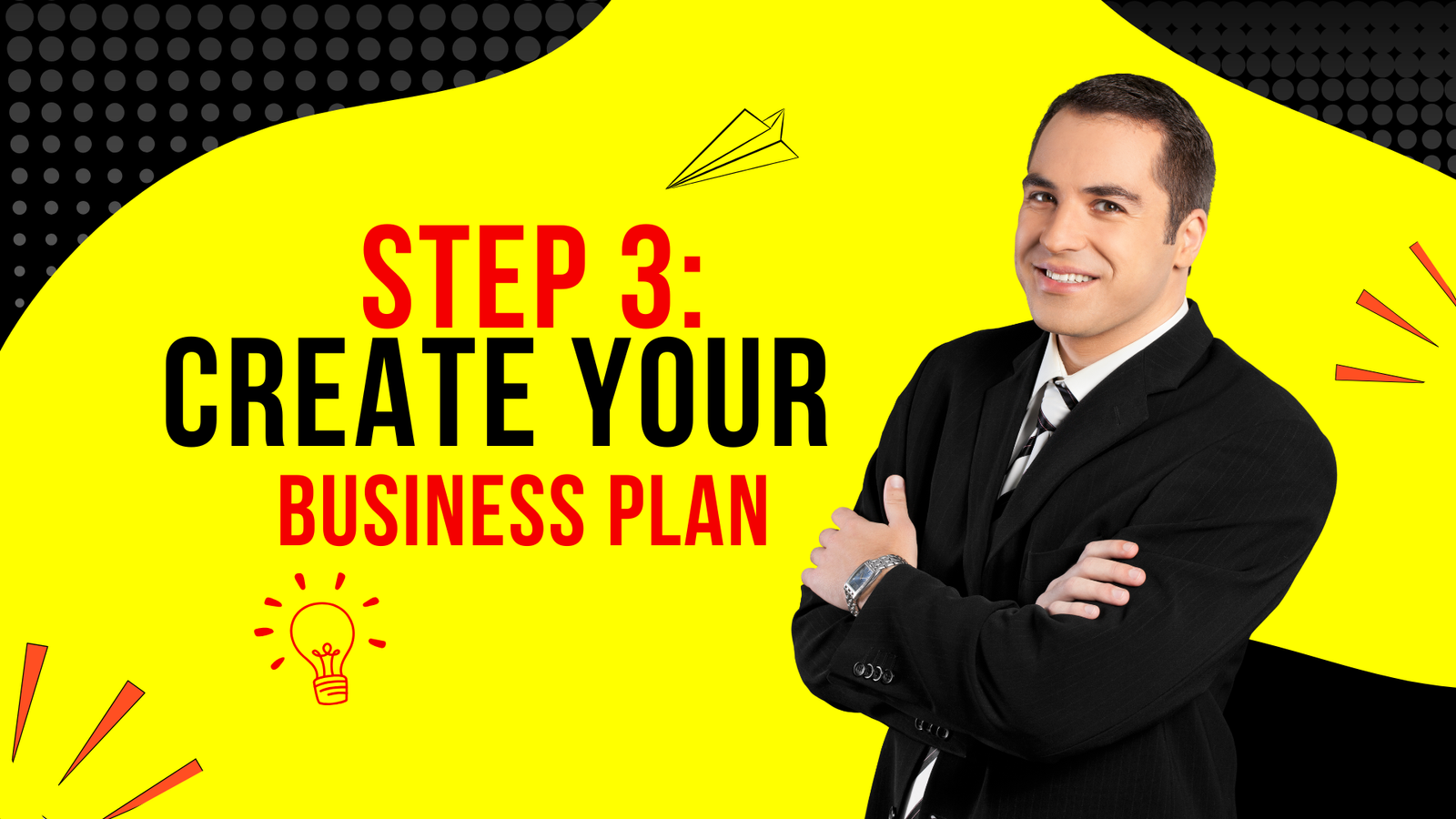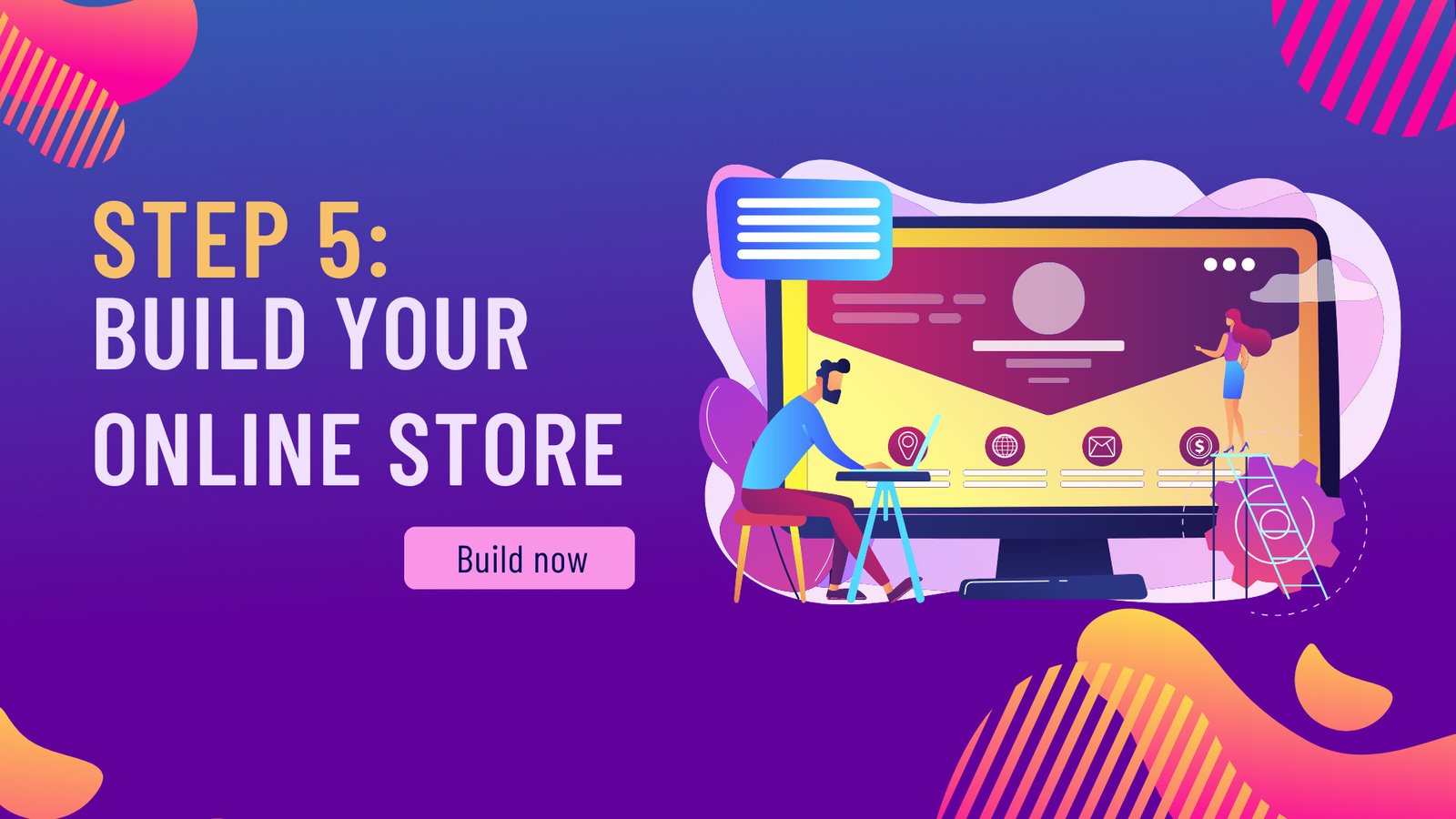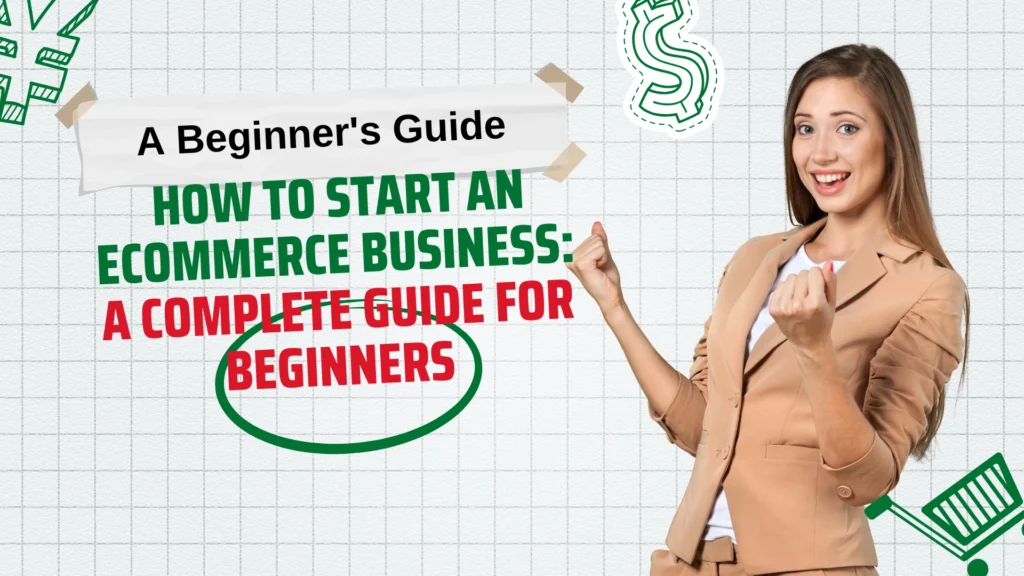Starting an ecommerce business has never been more accessible than it is today. Whether you’re sitting in your living room in Malappuram or working from a café in another city, the internet has leveled the playing field for entrepreneurs everywhere. You don’t need a physical storefront, massive capital, or years of business experience to begin selling online. All you need is a solid plan, the right tools, and the determination to make it happen.
But here’s the thing—knowing how to start an ecommerce business can feel overwhelming at first. There are so many moving parts: choosing what to sell, building a website, marketing your products, and handling logistics. It’s easy to get stuck in analysis paralysis before you even begin.
That’s exactly why this guide exists. I want to walk you through every step in simple, straightforward language. No confusing jargon. No complicated technical terms. Just practical advice that you can implement right away.
The ecommerce industry is booming. Global online sales are projected to keep growing year after year, and more people are shopping from their phones and laptops than ever before. This shift in consumer behavior means there’s enormous opportunity for anyone willing to jump in and start their own online store.
As a freelance digital marketer in Malappuram, I’ve helped dozens of small business owners launch their ecommerce ventures from scratch. My name is Kcs Jabir, and through this article, I’m going to share everything I’ve learned about building a successful online business. Whether you’re looking to earn a side income or build a full-time enterprise, this guide will give you the roadmap you need. I’m here to guide you through each stage so you can transform your online business idea into a profitable reality.
Step 1: Choose Your Niche and Products
The first step in learning how to start an ecommerce business is deciding what you’re going to sell. This might sound simple, but it’s one of the most critical decisions you’ll make.
Start by thinking about your interests and expertise. What are you passionate about? What problems do you see in your daily life that need solutions? Your ecommerce store will require time and energy, so choosing something you genuinely care about makes the journey more enjoyable.
Research market demand before committing to a product. Use tools like Google Trends to see if people are searching for what you want to sell. Look at online marketplaces like Amazon and Flipkart to understand what’s popular and what’s selling well.
Consider your competition too. If you’re entering a saturated market, ask yourself what makes your offering different. Maybe it’s better quality, unique designs, or exceptional customer service. Finding your unique selling proposition is essential when you’re figuring out how to start an ecommerce business successfully.
Don’t try to sell everything to everyone. Niche down. For example, instead of selling “clothing,” you might focus on “sustainable cotton t-shirts for yoga enthusiasts.” A specific niche helps you target your marketing efforts and build a loyal customer base.
Think about profit margins as well. Calculate the cost of sourcing or manufacturing your products, shipping expenses, and platform fees. Make sure there’s enough room for profit after all expenses.
Step 2: Validate Your Business Idea
Test whether your business concept has real market potential before committing major resources. This means testing whether people will actually buy what you’re planning to sell. Understanding how to start an ecommerce business includes knowing how to validate your idea properly.
Start small. Create a simple landing page describing your product and collect email addresses from interested people. If you get sign-ups, that’s a positive signal.
You can also use social media to gauge interest. Post about your product idea in relevant groups and communities. Ask for feedback. See how people respond.
Consider running a pre-order campaign. This not only validates demand but also gives you initial capital to fund your inventory. This validation step is crucial when learning how to start an ecommerce business from scratch.
Talk to potential customers directly. Conduct surveys or interviews. Ask them about their pain points and whether your product solves their problems. Real conversations reveal insights you won’t find through online research alone.
Working with a digital marketing expert in Malappuram during this validation phase can help you reach the right audience and test your ideas more effectively.
Step 3: Create Your Business Plan

Every successful ecommerce business starts with a plan. You don’t need a 50-page document, but you should have clarity on key aspects of your business. A solid business plan is fundamental when considering how to start an ecommerce business the right way.
Define your business goals. Set clear milestones for your initial six months of operation. The first year? Be specific with numbers—target revenue, number of customers, or order volume.
Outline your target audience. Who are your ideal customers? What’s their age range, location, income level, and interests? When you understand your ideal customer deeply, creating targeted marketing campaigns becomes significantly easier.
Plan your budget. How much money do you need to start? Account for everything from product sourcing and platform fees to advertising budgets and day-to-day running costs. Know your break-even point.
Think about your business structure. Will you operate as a sole proprietor, or will you register as a company? Understanding the legal requirements in your area is important for long-term success. These foundational decisions matter greatly when you’re learning how to start an ecommerce business.
Your business plan should also include your marketing strategy. How will you attract customers? Will you use social media, email marketing, paid advertising, or content marketing? As the best digital marketer in Malappuram, I always recommend a multi-channel approach that combines organic and paid strategies.
Step 4: Source Your Products
Now comes the practical part—getting the products you’ll sell. You have several options here. Product sourcing is a critical element of how to start an ecommerce business that many beginners overlook.
You can manufacture products yourself if you have the skills and resources. This gives you complete control over quality and branding but requires more upfront investment.
Wholesale buying is another option. Purchase products in bulk from manufacturers or distributors at discounted rates, then sell them at retail prices. This approach requires inventory management and storage space.
Dropshipping is popular among beginners because it requires minimal capital. With dropshipping, you don’t hold inventory. When a customer orders from your store, you purchase the item from a third-party supplier who ships it directly to the customer. The downside is lower profit margins and less control over shipping times.
Print-on-demand works well for custom products like t-shirts, mugs, or phone cases. Products are created only after a customer places an order, eliminating inventory risk.
Handmade products are perfect if you’re crafty. Platforms like Etsy have proven that there’s strong demand for unique, handcrafted items.
Whatever sourcing method you choose, prioritize quality. Your reputation depends on delivering products that meet or exceed customer expectations. Understanding these sourcing options is essential when figuring out how to start an ecommerce business profitably.
Step 5: Build Your Online Store

Your website is your digital storefront. It needs to look professional, function smoothly, and make shopping easy. Building an effective online store is perhaps the most visible aspect of how to start an ecommerce business.
Choose an ecommerce platform that fits your needs and technical skills. Shopify is beginner-friendly with beautiful templates and built-in features. WooCommerce works with WordPress and offers more customization if you’re comfortable with technology. Platforms like BigCommerce and Wix are also worth considering.
Select a domain name that’s memorable and related to your business. Keep it short and easy to spell. Your domain becomes a key element of how customers recognize and remember your business.
Design matters. Choose a clean, professional theme that showcases your products well. Use high-quality product photos from multiple angles. Include detailed descriptions that highlight benefits, not just features.
Make navigation intuitive. Customers should find what they’re looking for within three clicks. Include clear categories, a search function, and filters.
Your checkout process must be simple and secure. The fewer steps required to complete a purchase, the better. Offer multiple payment options including credit cards, debit cards, and digital wallets.
Mobile optimization isn’t optional anymore. Most people shop from their phones, so your website must look and work perfectly on smaller screens.
Don’t forget about speed. Slow-loading websites lose customers. Compress images, use reliable hosting, and minimize unnecessary plugins.
Step 6: Set Up Payment and Shipping
Customers need easy ways to pay, and you need efficient systems to deliver products. Setting up reliable payment and shipping is a fundamental part of how to start an ecommerce business successfully.
Integrate payment gateways that are trusted and widely used in your target market. Options like Razorpay, PayPal, Stripe, and Instamojo work well for Indian businesses. Make sure your payment process is secure with SSL certificates.
Be transparent about shipping costs upfront. Surprise fees at checkout are a major reason for cart abandonment. Consider offering free shipping above a certain order value to encourage larger purchases.
Partner with reliable courier services. Research options like Delhivery, Blue Dart, or India Post. Evaluate each courier based on pricing, speed of delivery, and how widely they serve your target locations
Set clear expectations about delivery times. Underpromise and overdeliver when possible. Customers appreciate receiving orders earlier than expected.
Create a straightforward return and refund policy. Yes, returns can be frustrating, but a generous policy builds customer trust and reduces purchase hesitation. This customer-first approach is vital when you’re learning how to start an ecommerce business that lasts.
Step 7: Develop Your Marketing Strategy
Building your store is just the beginning. Now you need to drive traffic and convert visitors into customers. Marketing is where many people get stuck when figuring out how to start an ecommerce business, but it doesn’t have to be complicated.
Start with social media marketing. Platforms like Instagram, Facebook, and Pinterest are perfect for ecommerce. Post regularly, engage with your audience, and use hashtags strategically. Show behind-the-scenes content, customer testimonials, and product demonstrations.
Content marketing builds long-term value. Start a blog related to your niche. Create valuable content that addresses the common concerns and queries your audience has. This improves your search engine rankings and positions you as an authority. Quality content is a powerful tool when understanding how to start an ecommerce business with sustainable growth.
Email marketing remains one of the highest-ROI channels. Collect email addresses from day one. Send welcome emails, product updates, and special offers. Personalize your messages based on customer behavior.
Social bookmarking can amplify your content reach. Share your blog posts and product pages on platforms like Reddit, Pinterest, Mix, and Flipboard. These platforms help you reach new audiences and build backlinks to improve your SEO. Strategic social bookmarking drives referral traffic that can convert into sales. Using social bookmarking consistently helps establish your online presence when you’re just starting out.
Paid advertising accelerates growth. Facebook and Instagram ads let you target specific demographics and interests. Google Shopping ads display your products directly in search results. Start with a small budget, test different approaches, and scale what works. Paid ads can fast-track your success when you’re learning how to start an ecommerce business.
Influencer partnerships can boost credibility quickly. Find influencers in your niche with engaged audiences. Even micro-influencers with a few thousand followers can drive meaningful results.
A freelance digital marketer in Malappuram like myself can help you develop and execute these strategies effectively, ensuring you get the best return on your marketing investment.
Step 8: Focus on Customer Service
Exceptional customer service differentiates good ecommerce businesses from great ones. Understanding how to start an ecommerce business includes knowing that customer relationships are everything.
Respond to inquiries quickly. Whether someone messages you on social media, emails you, or calls, fast responses show you value their business.
Be helpful even when someone hasn’t purchased yet. Answer questions thoroughly. Provide sizing guides, product comparisons, or recommendations. This builds trust.
Handle complaints professionally. Things will go wrong sometimes—delayed shipments, damaged products, or misunderstandings. How you handle these situations determines whether a customer becomes a loyal advocate or writes a negative review.
Follow up after purchases. Send thank-you emails. Ask for feedback. Demonstrate that their satisfaction matters to you long after they’ve completed their purchase.
Create a FAQ section on your website addressing common questions. You’ll handle fewer repetitive questions while shoppers find answers instantly. This efficiency is key when managing how to start an ecommerce business without burning out.
Step 9: Optimize and Scale
Once your ecommerce business is running, focus on continuous improvement. Scaling is the natural next phase after mastering the basics of how to start an ecommerce business.
Analyze your data regularly. Use Google Analytics to understand where your traffic comes from, which products sell best, and where customers drop off in the buying process. Data reveals opportunities for improvement that are crucial when learning how to start an ecommerce business successfully.
Test different approaches. Try new product descriptions, adjust your pricing, experiment with different marketing channels. A/B testing helps you discover what resonates with your audience. Testing is essential when refining how to start an ecommerce business that grows consistently.
Gather and showcase customer reviews. Social proof is powerful. Positive reviews increase conversion rates significantly. Ask satisfied customers to leave feedback and display it prominently. Social bookmarking your best reviews can also increase visibility across platforms.
Expand your product line based on customer demand and data insights. Don’t expand too quickly, but don’t be afraid to introduce complementary products that serve your existing audience. Smart expansion is a key milestone in understanding how to start an ecommerce business that scales sustainably.
Build relationships with your customers. Create a loyalty program. Offer exclusive discounts to repeat buyers. Turn customers into community members who feel connected to your brand. Community building transforms how to start an ecommerce business from a transactional model into a relationship-based one.
Consider automation tools as you grow. Email automation, inventory management software, and customer relationship management systems save time and reduce errors. Leveraging social bookmarking automation tools can also help distribute your content more efficiently.
Working with the best digital marketer in Malappuram can help you implement growth strategies that align with your business goals and budget, ensuring you apply the most effective tactics for how to start an ecommerce business and scale it profitably.
Step 10: Stay Legal and Compliant
Don’t overlook the legal aspects of running an ecommerce business. When learning how to start an ecommerce business, compliance isn’t optional—it’s essential. Register your business according to local laws. Obtain necessary licenses and permits. This protects you legally and builds credibility with customers.
Understand tax obligations. Ecommerce businesses must collect and remit taxes according to regulations in their jurisdiction. Tax compliance is a fundamental aspect of how to start an ecommerce business responsibly. Consult with an accountant familiar with ecommerce to ensure compliance.
Create clear terms and conditions and privacy policies for your website. These documents protect both you and your customers by establishing expectations and explaining how you handle personal information. Legal transparency is non-negotiable in how to start an ecommerce business with integrity.
Protect your intellectual property. Trademark your brand name and logo if appropriate. Respect others’ intellectual property as well—don’t use copyrighted images or content without permission. Understanding intellectual property rights is crucial when discovering how to start an ecommerce business that’s built to last.
Conclusion
Learning how to start an ecommerce business doesn’t have to be complicated. Yes, there are many steps involved, but each one is manageable when you break it down and tackle it systematically. Remember, every successful online store you admire today started exactly where you are now—with an idea and the courage to begin. The ecommerce landscape rewards those who take action, learn from their experiences, and continuously adapt.
Start by choosing a niche you’re passionate about. Validate your idea before investing heavily. Build a professional online store that makes shopping easy and enjoyable. Develop a marketing strategy that combines social bookmarking, content marketing, social media, and paid advertising to reach your target audience effectively.
Focus relentlessly on customer satisfaction. Listen to feedback, solve problems quickly, and always deliver more value than expected. These practices build the reputation and loyalty that transform first-time buyers into lifelong customers.
Throughout this journey, don’t hesitate to seek guidance from experienced professionals. As a freelance digital marketer in Malappuram, I’ve seen countless entrepreneurs succeed by combining their passion with smart digital marketing strategies. Whether you need help with SEO, social media management, or comprehensive marketing campaigns, the right expertise can accelerate your path to success.
The most important step in how to start an ecommerce business is simply starting. Don’t wait for the perfect moment or the perfect plan. Take that first step today. Set up your business plan, choose your products, and start building your online presence. The opportunities in ecommerce are vast and growing. With dedication, smart strategy, and a customer-first mindset, you can build a thriving online business that provides financial freedom and fulfillment. Your ecommerce journey begins now—make it count.

